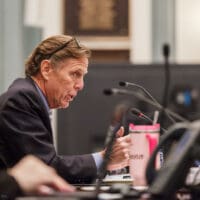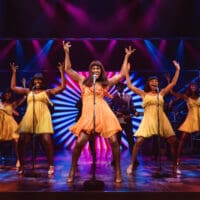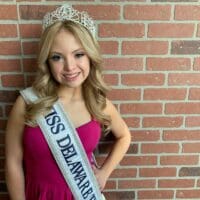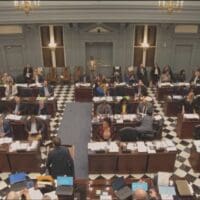

The Choir School of Delaware is helping to organize a conference celebrating Black music in all genres.
For four days this week, Grace United Methodist Church in Wilmington will be alive with the sounds of the first conference ever designed to shine a light on the contributions and accomplishments of Black musicians and composers.
“Bent, but not Broken,” will feature panels, lectures and choir performances from Thursday, April 27, through Saturday, April 30.
Already, attendees are asking when next year’s conference will be.
Arreon A. Harley-Emerson, organizer of the conference and director of music and operations at the Choir School of Delaware, says he feels comfortable saying that the program is the first of its kind to look at Black music across time and genres in that light.
For proof, he cites The National Association of Negro Musicians, formed in 1919, to teach Blacks to take on music ministries in churches. That organization also is devoted to the conservation, encouragement and advocacy for all genres of the music of African-Americans and tracks events involving it.
It has no records of a conference such as “Bent, but not Broken,” Harley-Emerson said.
The conference — originally scheduled for spring 2021 but moved because of COVID-19 — has its roots in an invitation from Harley-Emerson to conductor and composer Jason Max Ferdinand of Oakwood University in Huntsville, Alabama, to guest direct a Choir School performance.
It’s a Small World connection: Harley-Emerson grew up in Baltimore, Maryland, and met Ferdinand when Harley-Emerson was a boy attending Morgan State University events and Ferdinand was a graduate student there. Now they cross paths in many ways and organizations.
When Harley-Emerson, who is now earning his Ph.D. from Temple University and active in many national groups, told others about the invitation, they said they wanted to come and bring their choirs.
All that interest turned into the conference.
Ferdinand will conduct the Choir School singers Friday, April 29, after Harley-Emerson’s 7:30 p.m. keynote speech.
“Representation matters,” Harley-Emerson said. “It matters in education and it also matters in the arts. This is exactly the kind of conference that I wish I had when I was a kid when I did not see myself represented on the podium.”
Choir school Development Officer Karen Kegelman pointed to its singers’ performance of “The Ballad of the Brown King” at Winterthur Museum at Christmas. It was only the third time the cantata composed by Margaret Bonds with lyrics by Langston Hughes had been performed in public, she said, even though the piece received critical acclaim when it debuted in December 1954.
“It’s so beautiful,” Kegelman said. “I was like, wow, if this is just one example of the music that’s out there that we haven’t heard, we really need to hear more of it.”
While the conference tent poles will be keynote speeches and choir performances, the conference will include sessions such as “It’s All About the Benjamins,” with panelists talking about raising money; “A New Perspective for the Use of Dialect in African American Spirituals,” by Dr. Felicia Barber, director of choral activities at Westfield State University in Westfield, Massachusetts; “Somebody’s Knockin’ At Your Door: Unlocking the Spiritual and the Underground Railroad,” with author Eileen Guenther talking about symbolism in spirituals; and “Where Do We Go from Here,” with Harley-Emerson moderating a panel discussion with Robyn Hilger, the executive director of the American Choral Directors Association, and Catherine DeHoney, CEO of Chorus America.
See the full schedule here.
Choirs that will be performing include the American Spiritual Ensemble, which is based in New York City, but has members from across the country; EXIGENCE, a choir of Black and Brown voices from around the country, headquartered in Detroit; Westminster Choir College Jubilee Singers from Princeton, New Jersey; the St. Thomas Gospel Choir of Philadelphia; the Youth Honor Choir of Delaware; and the Choir School of Delaware.
Get tickets for their performances here.
About 120 people are registered for the conference. Tickets are available for $20 for all concerts, which usually include the keynote speaker’s address, and $180 for the full conference. Day passes are available.
See ticket prices here. Attendees may buy online or show up at the church.
Harley-Emerson said he recognizes that those prices may be impossible for some people interested in the music or topics.
Anyone who would like to attend, but can’t afford it, should email Hannah Grasso at [email protected], he said.
“We want to make sure that there are absolutely no barriers to folks who would like to attend,” Harley-Emerson said.
Masks and full vaccination against COVID-19 are recommended for all attendees.
Harley-Emerson said he’d like the conference to become an annual or biannual event.
“My hope is that folks begin to look at the contributions of black composers through a scholastic lens as music of merit, just like there are conferences for early music and in all of these things,” he said. “It’s my hope that we will now begin to have a conference that is held regularly that champions music by black composers, because it’s just something that hasn’t existed.”


Betsy Price is a Wilmington freelance writer who has 40 years of experience.
Share this Post







